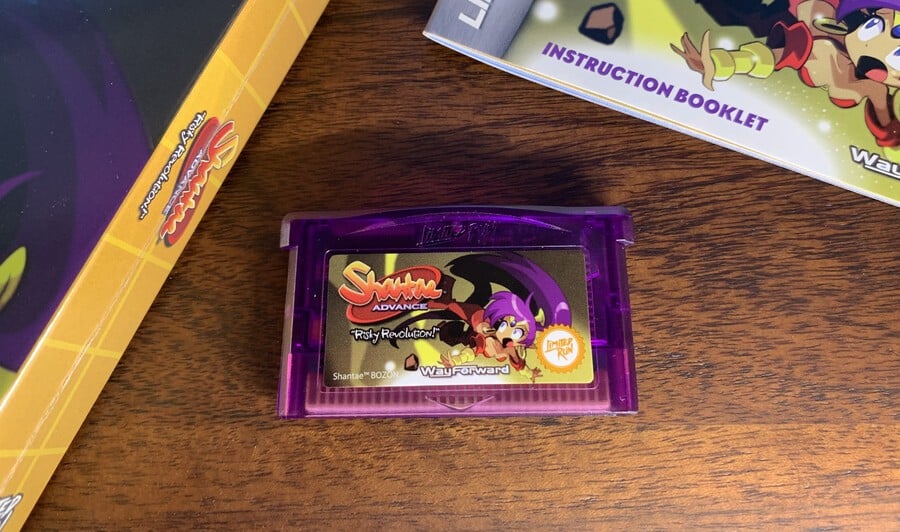
Physical publisher Limited Run Games has come under fire for allegedly using recycled chips in one of its latest releases, Shantae Advance: Risky Revolution on the GBA (thanks, VGC).
The game—which was originally supposed to launch last year but was delayed—is set between the original Shantae and Shantae: Risky's Revenge. Development began back in 2002, but was cancelled a couple of years later due to a lack of interest from publishers. The project was revived in 2023, with Limited Run being confirmed as the distributor.
In reality, Retro-Bit Gaming—another company operating in the same space that has recently come under fire for improperly sourcing its translations—was responsible for manufacturing the physical cartridges, and it claims that reports of "cosmetic blemishes" and "imperfections" only impact a "small number" of carts.
As reported by Video Game Esoterica, owners of the newly-released cart have found that it contains what appear to be "pulled" chips—basically chips which have been removed from other products and re-used in Shantae Advance: Risky Revolution cartridge.
Recycling such chips isn't a new thing; it's quite a common practice in China and can result in components being obtained for much lower prices than when buying new ones.
However, as noted by Video Game Esoterica, the chips present in Shantae Advance: Risky Revolution are still being produced and can be purchased in bulk for commercial releases. Given that the game retails for $60, some customers have voiced their frustration that new chips weren't used.
Retro-Bit has issued its own statement on the matter, reassuring customers that the chips used in the game, whilst showing some cosmetic damage, are 100% safe:
Unsurprisingly, some buyers have asked LRG if they will replace any cartridges that have badly damaged chips. "Aside from small imperfections found on a small number of boards, they've all been tested by our friends at Retro-bit and the product is built to last," says the company before adding that unhappy buyers are "more than welcome to submit a ticket to our Support team for a replacement."
We approached LRG's Josh Fairhurst for comment and were given the following statement:
My understanding is that this is the largest run of new GBA games in over 15 years - 20,000 units - and to pull it off Retro-Bit had to source a lot of new old stock FRAM chips that are no longer widely manufactured. Due to the amount needed and the decades they've been in storage, there's a wide variance in the visual aesthetic of the chips.
This does not impact the function of the chips and Retro-Bit has assured us that customers will have no issues with their cartridges. The cartridges have been tested across a wide variety of hardware: GBA, SP, Micro, DS, DS Lite, GameCube player, and Analogue pocket. Across the board we have had no issues with the operability or function of the cartridges. We have played through the game front to back at both LRG and WayForward hundreds of times. Customers will not have any issues playing or enjoying their cartridges for decades to come.
That all said, it's unfortunate that this has distracted from what was otherwise a great story. We provided WayForward with over $1,000,000 to revive a Shantae project that had been abandoned, allowing them to finally finish this lost chapter in her saga. No other publisher in the last 25 years was willing to provide this funding and this game honestly would not exist if we had not been willing to take the risk on it.
The final game is absolutely amazing and I believe that if it had launched during the GBA's lifespan, it would be remembered as one of the best games on the platform. I'm honored to have been able to help bring this thing to life and I hope that the legacy of this project is focused on the story around the game, how it came to be, and how incredible it ended up being.

